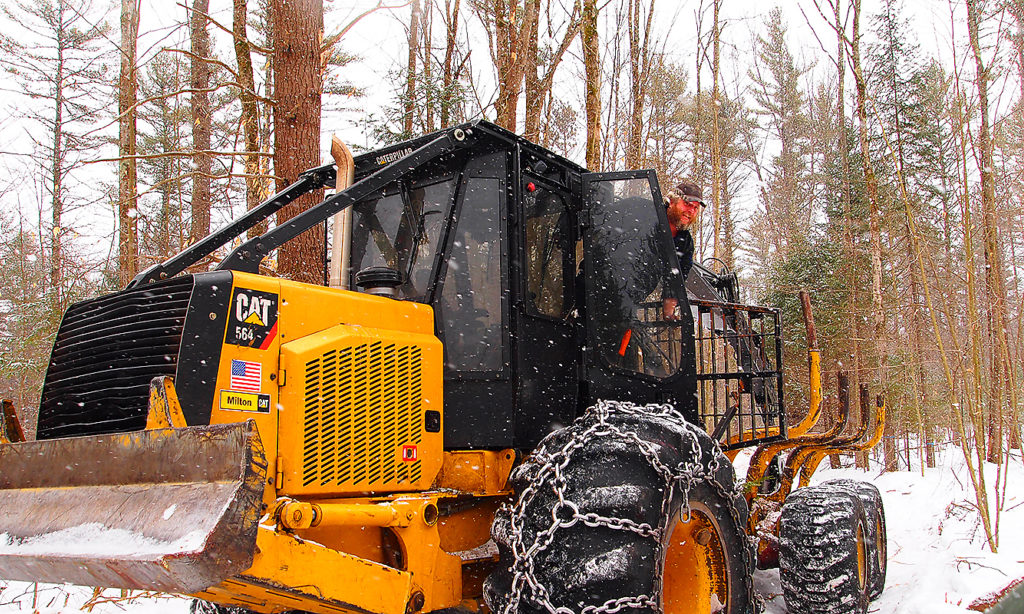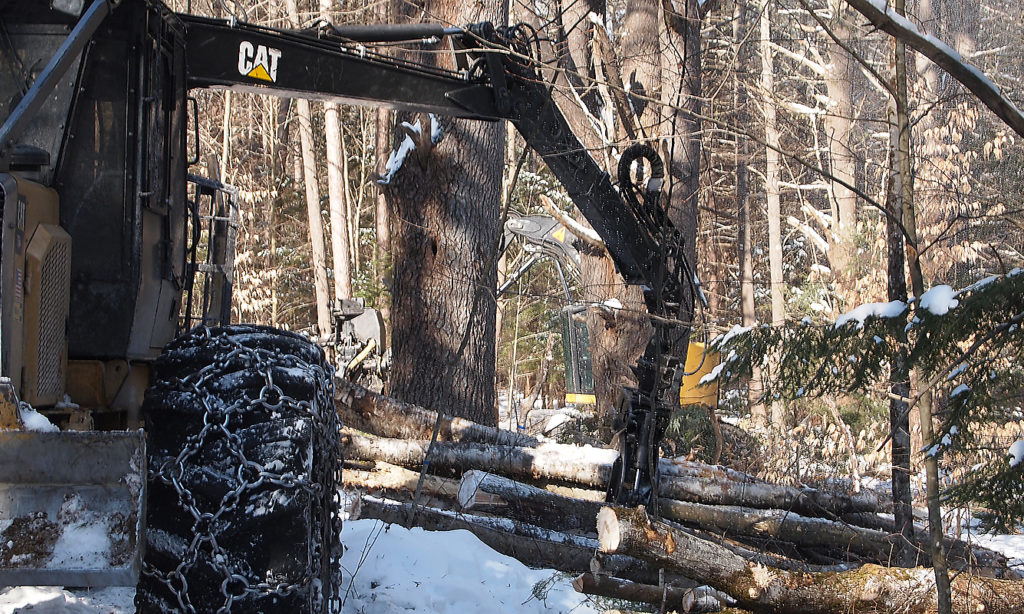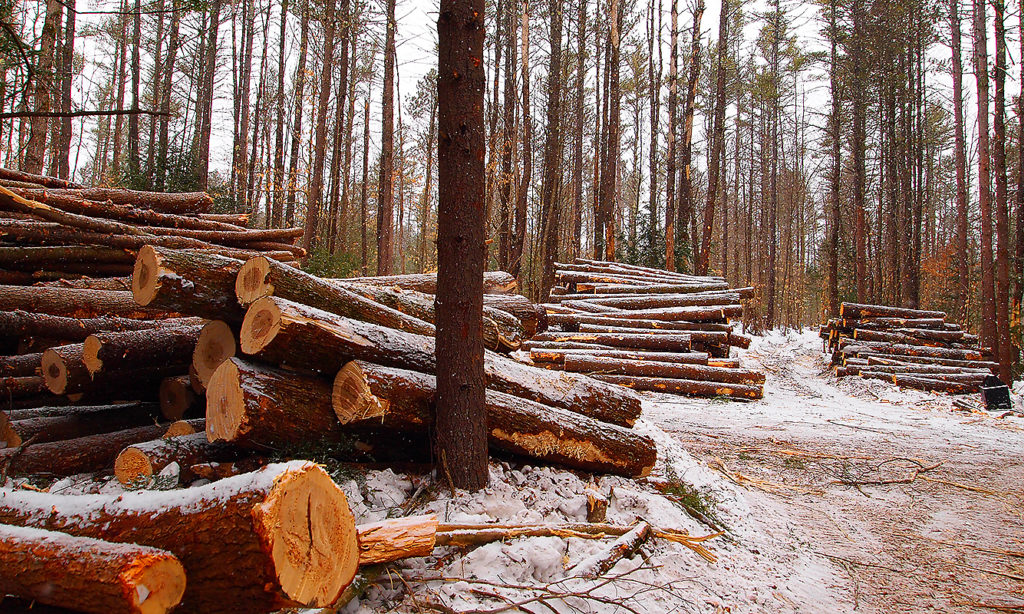Winter tree harvest necessitates temporary closure of four studios and will improve health of forest.
In February and early March foresters will cull a sprawling stand of conifers in the northwest corner of The MacDowell Colony property. The harvest, guided by Calhoun and Corwin Forestry of Peterborough, will ultimately improve the ecological health of a 50-acre parcel by removing unhealthy trees that have essentially stopped growing and are preventing sunlight from reaching the forest floor.
Timber-harvest-(big).jpgWith a majority of the canopy removed, newly created forest edges will spring to life, improving the buffer at the edge of the property and leading to a healthier forest for generations to come.
“With more than 400 acres of woodland, we have a responsibility to steward the land,” said MacDowell Colony Resident Director David Macy, explaining that the corner in question populated with large stands of equal-age white pines “growing so closely together that the tree crowns are too small to sustain tree health.” If left unchecked, such weakened trees often become hosts for diseases and blights, creating problems even in healthier tree stands nearby.
Forester Swift Corwin, who is directing the harvest, explained the stand of trees in question has grown to a point where the high tree density combined with a high water table is essentially exceeding the carrying capacity of the land.
“The trees are under stress,” Corwin said, explaining that he was finding a lot of dead stems and rot in the initial harvesting. “It’s clear it was time to harvest. This will allow the sun to come in and regenerate the forest and allow new trees to grow back.”
The healthiest tree specimens will be left standing to generate seed to help re-forest the area for coming generations of MacDowell Fellows. The soil in the resulting open areas will be improved by leaving a large portion of the cut trees’ biomass in place to decay. While this work is ongoing, Star, Wood, Kirby, and Chapman studios will be closed, allowing the heavy equipment and logging trucks to proceed without disturbing the peace. Near the four affected studios, wide buffers of trees will be left in place, softening the visual impact to be seen from inside.
Forest management is just one facet of The MacDowell Colony’s responsibility to the land on which it sits. A proposal for a master plan to sustain and enhance the natural environment between studios and common buildings is currently in development. When funded, the study will help prioritize future stewardship and integrate the myriad systems overlaid on the property: foot and vehicle traffic, gardening, rainwater management, animal husbandry, composting, meadow conservation, landscape aesthetics, and woodlot management.
“With artists occupying the studios 365 days each year, the Colony has a responsibility to maintain ideal working conditions,” said Macy. “So while chainsaws and orchestration do not generally go hand in hand, both activities are required.”



